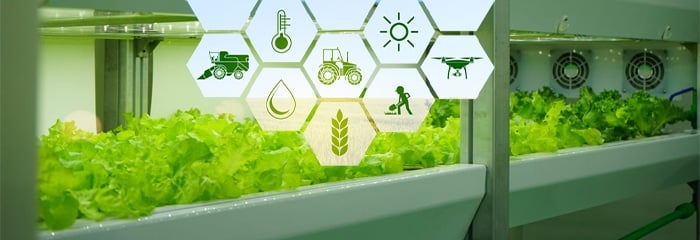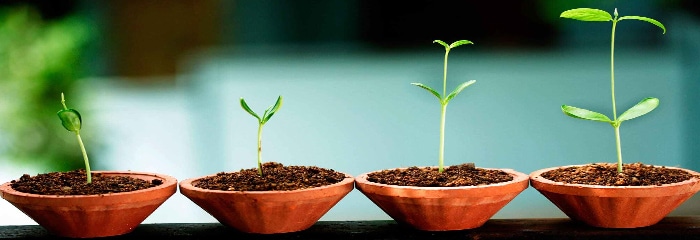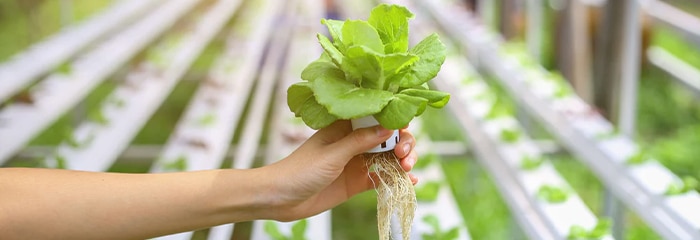Growers h
ave two primary options when cultivating their vegetables, herbs, and other plants. They can either go for the traditional soil culture or the more recent hydroponics culture. While the former uses soil (as the name indicates), the latter relies on mineral nutrient solutions to provide plants with the support and nutrients required for growth.
The hydroponic system offers many advantages, including its suitability for cultivation in areas where it is impossible to do in-ground cultivation. It is also less polluting and friendly to the environment. Regarding yield, plants grown in hydroponic systems often show higher yields because of the intensive practices and easy harvesting.
Should you grow your plants in hydroponics systems or soil despite these advantages? Your answer will depend on a few factors, which we have identified in this article.
So, without wasting time, let’s get to it!
1. Are you a novice or an experienced grower?
The first and most important consideration for any grower looking to choose between soil and hydroponics cultivation is experience.
Soil cultivation is simpler.
Beginner growers often prefer soil culture because they are already familiar with cultivating plants in the soil. Another reason for their choice is the relative simplicity of the soil cultivation system over the hydroponics. You only have to sow your seeds, water your plants, and maintain a few other gardening practices.
Similarly, it is easy for growers to manage the soil culture because all essential growth factors are naturally present. The system also allows quick detection of problems and effective resolution because the environmental factors affecting plant growth change slowly.
If you are a newbie grower looking to cultivate your crops without worrying about too many technicalities, soil cultivation is the way to go.
Hydroponics systems require technical knowledge.
Despite having different types of hydroponics systems, a newbie grower without considerable growing experience and technical knowledge may struggle to get the best out of these systems. From deciding on the suitable growing media to fitting in the air stones and air pumps and setting up the net pots, a lot is going on in an average hydroponic system.
Hydroponics is more complex than soil cultivation. With hydroponics, the grower is entirely responsible for providing plants with the required nutrients and environmental conditions like temperature and pH balance to ensure growth. While this allows for greater control, it also comes with immense responsibilities and understanding.
Therefore, experienced growers are more likely to seamlessly transition from traditional soil cultivation to the advanced hydroponics system. These growers are already familiar with the specific technical requirements of plants regarding nutrients and environmental conditions. So, they can take advantage of the flexibility and versatility of hydroponics to get the particular results they desire.

2. Do you prefer indoor or outdoor growing?
There are two types of growers: those who love growing indoors and those who prefer growing their plants outdoors. The side of the divide you find yourself in will most likely determine which you go for between soil cultivation and hydroponics cultivation.
Hydroponics is more suitable for indoor growing.
You can grow your plants hydroponically indoors and outdoors. However, the system is more suitable for indoor growing. Setting up a hydroponic growing system outdoors exposes your plants to environmental factors, which may adversely affect your plants’ growth and development.
For instance, meteorological factors like rain distort the pH balance and EC value of your growth medium, thus hindering plant growth. Temperature change due to the sun will also influence growth negatively because plants in hydroponic systems struggle in extremely hot or cold conditions. Furthermore, choosing an outdoor hydroponic system means you have minimal control over exposure to light. This might be an issue considering lighting time requirements differ across plants.
Having your hydroponic system indoors prevents undue interference with these environmental factors and their adverse effects on plant growth and development. The growth environment is more stable and the grower can supplement the plants with led grow light, nutrients, etc. Therefore, the indoor hydroponic system has less restrictive factors.
Soil cultivation is ideal for outdoor cultivation.
The soil is naturally suited to environmental conditions as a natural growing medium. It effectively handles meteorological factors like rain, light (sunlight), and temperature to help plant growth and development. You do not have to worry about micro-managing these factors to ensure they do not affect your plants.
Depending on your experience as your grower, you may choose soil cultivation as an option to grow your plants outdoors or hydroponic cultivation to grow them indoors.

3. Are you growing for personal or commercial consumption?
Your purpose for cultivation is another crucial determinant factor when considering hydroponics and soil cultivation systems. Growers growing for personal consumption will likely choose soil cultivation because it is simpler and less technology intensive. Conversely, despite their relative complexity, hydroponics systems are more suitable for commercial growing.
Commercial growers will prefer hydroponics systems.
With about 83 million people added to the global population yearly, we are expected to have 10 billion worldwide by 2050. But with increasing population comes increasing food shortages. For instance, up to 124 million people experienced severe food shortages in 2019 only. All of these point to the need for faster, more extensive, and more efficient food production systems that can cater to people on a large scale. That is why hydroponics comes in.
Hydroponics shines at delivering maximum plant growth and yield even in unfavorable environmental conditions. By leveraging technology, we have devised a way to achieve maximum yield from plants using limited resources far greater than what natural cultivation through soil can offer. These systems have been shown to deliver high-crop yields and product quality by providing plants with the exact nutrients they need to grow and develop optimally, even in limited spaces.
Hydroponic growing systems are also energy efficient and allow higher reuse rates than soil. You can reuse the setup and its components without losing their effectiveness. This helps to minimize energy and labor requirements and the enormous costs associated with these factors. It is also important to mention that hydroponics deter pest and disease infestation in growing crops. Having complete control over the growing environments allows for effective risk mitigation from different crop-damaging diseases and pests.

Soil culture is better for personal growers.
Soil culture is ideal if you are growing a small area or interested in cultivating herbs, vegetables, and similar crops for you and your family. It is the simpler option, requiring fewer skills and just the standard equipment. Even a limited budget does not stop you from having a successful growing season using soil culture.
Are you growing for personal or commercial consumption?
This article successfully established the strong points of hydroponics and soil cultivation. We have also linked these points to determining factors like purpose, area of cultivation, and experience level. While both options are great, using them correctly is the only way to get the best out of each.
We recommend assessing your needs and determining which of the two systems can help you meet them effectively. For example, hydroponics is right for you if you are an experienced grower and prefer indoor growing. In contrast, soil cultivation is the way to go if you find hydroponics too technical and want a simpler growing system for your plants.
Source link
